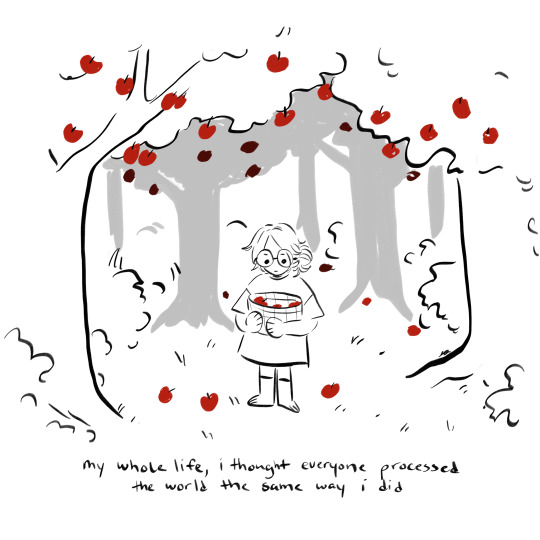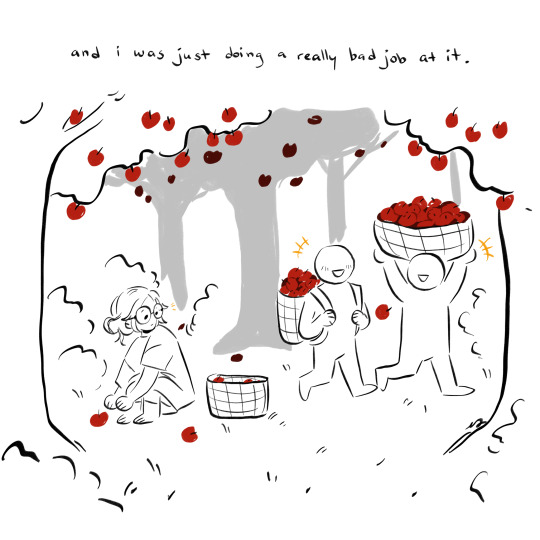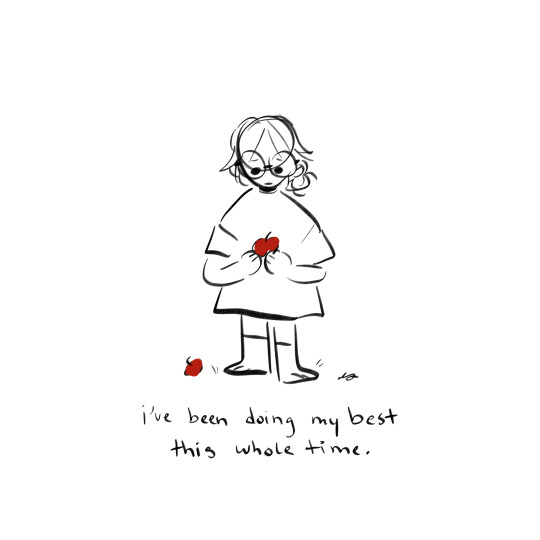Text
As someone with a major depressive disorder and ADHD, some aspects of self-care are difficult. It's hard to get started with brushing your teeth, and when you go for so long without it, you forget how good it feels.
This can be explained by the hot-cold empathy gap. When you're sitting in a feeling, it's easy to.. feel it. You recognize the emotion,the sensation.
It's a type of bias that, in my opinion are more prevelant in certain neurotypes.
According to the decision lab this empathy gap
" describes our tendency to underestimate the influence of varying mental states on our own behavior and make decisions that only satisfy our current emotion, feeling, or state of being. "
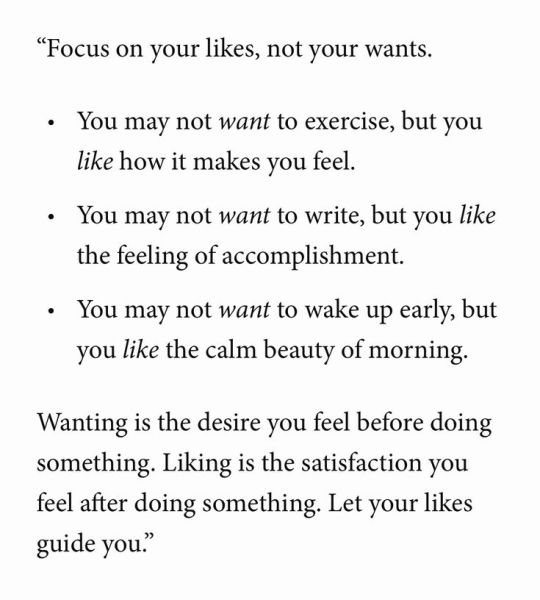
Quote of the day
#reframeyourthoughts#self care#behavioural theory#cognitive distortions#cognitive science#executive dysfunction#living with adhd
49K notes
·
View notes
Text
The thing is, we can't avoid conflict. We try our best, and that's good, but there will be conflict in relationships.
The thing that I think helps define a healthy relationship is how you handle that conflict together. And part of that is you should plan for conflict and how you'll handle that together.
When handling a conflict:
Both parties should be able to have the space to say their piece and talk about their feelings.
Validate the other's feelings if possible. This doesn't mean you necessarily agree with anything, or agree with their version of events. It just means you've heard them and are showing that you hear them.
Both parties needs should be heard, and if possible, a compromise might be found to meet the needs of both parties. This might require negotiating.
It shouldn't be about who's "right" or "winning." It should be about how you can solve the problem together.
If someone wronged someone, there should be accountability. Even if that person didn't mean to hurt the other person. You can and still should apologize for someone being hurt, and don't blame them for being hurt. It might be "I'm really sorry I hurt you. That wasn't my intention at all, but I can see you are feeling hurt, and I am sorry."
Try and be gentle. While I understand the want to yell, or use accusatory statements, these things are more likely to put someone on the defensive which will likely prolong the conflict. People are more likely to hear you out if they don't feel attacked, and are approached more gently. If you aren't in a place to do this, walk away and approach the hard conversation when you are feeling more calm.
Here are some suggestions I have for communicating during conflict. If you don't have a lot of spoons but can read one, I want to suggest the DEAR MAN one as one to prioritize!
This is a post about I-Statements. These statements are very useful for being honest about your feelings while not being accusatory. While it's tempting to be aggressive when talking about things that seem obvious to use, if we want to preserve a relationship with someone, we should approach conflict with the intent of finding a solution and not winning the argument. This usually means approaching the conflict with a goal in mind.
Here is my post about if you need to apologize to someone.
Here is a post about the DEAR MAN method. The goal of this skill is to communicate effectively with someone in a way that helps you express your needs/wants in a way that is respectful of all parties involved in hopes of reaching a positive outcome.
This is about FAST. This skill is useful for working to communicate in a way that preserves relationships while also maintaining one’s own self-respect.
This is a post about GIVE. It's helpful to use with a method like DEAR MAN.
502 notes
·
View notes
Link
“Did it ever get physical?”
This is often the first question we ask someone we know or suspect is in an unhealthy relationship. While starting a conversation around physical abuse is essential, the issue is when it’s the only question we ask.
Stopping short of inquiring about other forms of abuse implies that physical violence is the defining factor of an unhealthy relationship. Even worse, it conveys the message that whatever else might be going on is just “not that bad.”
This is a huge issue, because emotional abuse can absolutely be that bad.
Even if relationship never gets physically abusive, emotional abuse can escalate over time with devastating consequences, even death. And while emotional abuse does not always lead to physical abuse, physical abuse in relationships is nearly always preceded and accompanied by emotional abuse.[i]
Why don’t we hear more about emotional abuse? In addition to the common misconception that it’s just not that serious, many people simply aren’t sure what emotional abuse actually entails.
My aim here is to help you understand what emotional abuse really means and what makes it so dangerous so that you’re better equipped to start the conversation. Because if you want to stop it, you first have to know what you’re dealing with.
Defining Emotional Abuse
Understanding emotional abuse is complicated for many reasons. One reason is because there are several different names used interchangeably to refer to the same kind of abuse, including emotional abuse/violence, psychological abuse/violence, and mental abuse. For simplicity, we’ll use “emotional abuse” going forward.
Another complication is that there isn’t one accepted definition of emotional abuse. It seems that everyone has a slightly different version.
We’ve identified several common threads that make up the most widely accepted definitions and combined them here to create the following description of emotional abuse:
Emotional abuse is any abusive behavior that isn’t physical, which may include verbal aggression, intimidation, manipulation, and humiliation, which most often unfolds as a pattern of behavior over time that aims to diminish another person’s sense of identity, dignity and self worth, and which often results in anxiety, depression, suicidal thoughts or behaviors, and post-traumatic stress disorder (PTSD).
Wow, that’s a lot.
Each part of the definition presents its own complications to fully grasping the reality of emotional abuse, so let’s dissect what this really means, piece by piece.
Breaking Down Emotional Abuse
1.“…any abusive behavior that isn’t physical…”
Pretty broad, right? Emotional abuse is difficult to comprehend because it encompasses so much. Just take a look at the non-exhaustive list[ii] below of behaviors that are potentially emotionally abusive:
Intimidation
Manipulation
Refusal to ever be pleased
Blaming
Shaming
Name-calling
Insults
Put-downs
Sarcasm
Infantilization
Silent treatment
Trivializing
Triangulation
Sabotage
Gaslighting
Scapegoating
Blame-shifting
Projection
Ranking and comparing
Arbitrary and unpredictable inconsistency
Threatening harm
Forced isolation
We specify “potentially” abusive behaviors because some of the behaviors on this list could occur in a healthy context as well. Let’s take sarcasm and infantilizing speech, for example. Many people consider sarcasm a key component of a good sense of humor. Many people would also agree that using infantilizing speech as terms of endearment is harmless, for example referring to a significant other as “baby.” However, in the context of emotional abuse where the intent is malicious, these behaviors can be extremely cutting, especially when disguised as affection or an innocent remark. For example, someone who repeatedly tells his or her significant other “My baby is so smart” in a way that’s meant to mock their partner’s intelligence using sarcasm as well as infantilizing speech to make them feel small is a form of emotional abuse.
2. “ …which may include verbal aggression, intimidation, manipulation, and humiliation”
The key word here is “may.” Not only is the list of emotional abuse tactics incredibly long and dependent on context, the particular combination of behaviors that show up, how they show up—whether overtly or covertly—and with what intensity can also vary greatly from relationship to relationship. As a result, we have another layer of complexity: emotional abuse doesn’t have one specific look.
For example, an emotionally abusive relationship where overt aggressing behaviors like yelling, threatening and blaming are predominantly used will look very different from a relationship where only very subtle forms of abuse like gaslighting, passive-aggressive put-downs, and minimizing are used.
3. “a pattern of behavior over time”
Emotional abuse is rarely a single event. Instead, it occurs over time as a pattern of behavior that’s “sustained” & “repetitive.”[iii] This particular characteristic of emotional abuse helps explain why it’s so complicated and so dangerous.
Even if you’re the most observant person in the world, emotional abuse can be so gradual that you don’t realize what’s happening until you’re deeply entangled in its web. As a result, the abuse can go unchecked as the relationship progresses, building for months, years, even decades, especially if the abuse is more covert. In such instances, the target’s self-esteem is steadily eroded and their self-doubt becomes so paralyzing that they often have only a vague sense that something (though unsure what) is wrong.
4. “aims to diminish another person’s sense of identity, dignity, and self-worth”
Regardless of how emotional abuse unfolds, experts agree that it has devastating effects on those who are subjected to it.[iv]
Unfortunately, these effects as well as each harmful act of abuse are largely invisible. This makes it difficult for most people to comprehend the very real risks and damage of emotional abuse.
Let’s demonstrate why. For a moment, try to imagine a scene of physical violence, a fight. Even if you’ve never witnessed or experienced it firsthand, your imagination can probably fill in the picture pretty well. The struggle. The adrenaline and fear. The aftermath of blood, bruises, tears. It’s a painful portrait but likely one that you can envision.
Now, try to picture a scene of emotional abuse, specifically someone whose self-identity has been annihilated. Can you see it?
Chances are your mind doesn’t know where to begin. But if you are able to create a picture of either the acts of abuse or what the damage looks like on the person who experienced it, can you put that image into words?
While describing physical wounds is pretty straightforward, it’s much harder to articulate emotional trauma. The parts of a person that sustained emotional abuse destroys—identity, dignity, and self-worth—are abstract, almost impossible to picture or measure.
5. “results in anxiety, depression, suicidal thoughts or behaviors, and post-traumatic stress disorder (PTSD)”
Because emotional abuse is essentially invisible, singling out the abuse as the culprit of its destructive effects is another kind of challenge and frustration.
Even in cases of extreme emotional abuse, there are no bruises or gashes where the victim can point and say, “This cracked rib is from that constant belittling and invalidation” and “That swollen eye and broken lip are from the incessant name-calling and guilt-tripping and pathological lying.” Instead, what emotional abuse ends up looking like is a person suffering from painful yet not uncommon afflictions like anxiety or depression.
It can therefore be heartbreakingly easy for anyone—whether the person inflicting the emotional abuse, a third-party observer, or even the target of the abuse—to misattribute its damage to some other cause like unemployment or family stress or even blame the target’s prior mental state if he or she battled similar issues in the past.
Closing Thoughts
Hopefully this explanation of emotional abuse is as comprehensive as possible, but I recognize that it’s still bound to have gaps due to the complications I’ve just mentioned. Think of it more as a springboard for future conversations and exploration than an all-encompassing definition.
Emotional abuse, like any other form of cruelty, thrives in the darkness when no one understands, discusses, or recognizes it. Use your newfound knowledge and curiosity to shine the light on the risks and devastation of emotional abuse.
A great place to start is with asking the question, “How does that behavior or action make you feel?” or “Did it ever get emotionally abusive?”
185 notes
·
View notes
Text
"Is God willing to prevent evil, but not able? Then he is not omnipotent. Is he able, but not willing? Then he is malevolent. Is he both able and willing? Then whence cometh evil? Is he neither able nor willing? Then why call him God?"
—Epicurus
618 notes
·
View notes
Text
unavoidable that you will be the villain in someone else’s story. You will be painted in an unfavorable light. You will be the irredeemable one. and all of this will happen despite how nice you might usually be or how kind or how respectful or how warm. and you will just have to move on.
82K notes
·
View notes
Text
Reasons someone may not have replied that aren’t the bad reasons your brain suggests to you (they’re mad, stopped caring, you aren’t important, etc).
They’re asleep/resting.
They have no service.
They want to take time to form their reply.
They don’t have the energy to reply right now.
They’re working / don’t have access to their phone.
They accidentally opened the notification and meant to reply and got distracted (this doesn’t mean they don’t care either! I do this a lot and I love my loved ones dearly. My brain is just chaotic sometimes.)
They’re in a really bad place.
They’re in a situation where it’s rude to use their phone.
They really just want a break from talking to people.
They are enjoying a movie, game, activity, etc.
Something came up they had to deal with asap.
A lot of the time, to challenge irrational thoughts we need alternative explanations to combat them. Here are some for a situation when a loved one hasn’t replied to you. I encourage you to plan for other situations that come up for you as well.
8K notes
·
View notes
Text
A person with an abusive nature will always register you standing up for yourself as an act of betrayal. Betray them.
141K notes
·
View notes
Text
Hydrate or die-drate bitches!!
you ever think huh i havent drunk anything in a while, i guess i'll just have a little sip- glug gLUG GLUGGLUG HOLY SHIT GLUG GLUG GLUG GLUG GLUG GLUGGLUGLGUGLUG
61K notes
·
View notes
Text
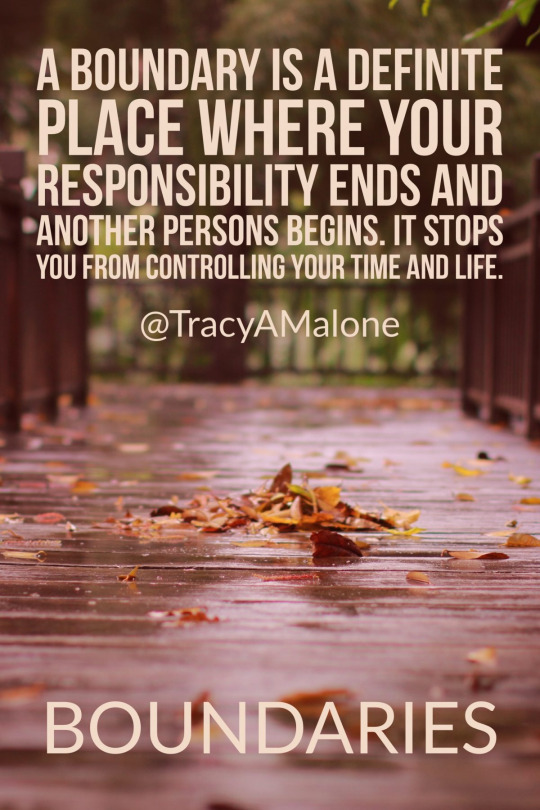
Image Description: A boundary is a definite place where your responsibility ends and another persons begins. It stops you from controlling your life and time. @traceyAMalone.
0 notes
Text

Part one of an infodump on Boundaries.
Curious? Ask away.
0 notes
Text

Stepping out of your comfort zone is hard, but progress is progress.
#kathy overman#self care#coping methods#mental health awareness#c ptsd#startle response#fight flight or freeze#personal growth
5 notes
·
View notes
Text
<3
They say:
-You can't be AuDHDer because you are "normal".
-We're all a little autistic/ADHD.
-You can't be AuDHDer because you are queer and trans and you had s3x with your partner.
And stuff like that.
But when I don't mask, when I show autistic and ADHD joy, when I stim, when they see my special interests, they say I'm "weird", "childish" or "stupid".
When I show my difficulties, when I need support, when I have repetitive and racing thoughts, they say I'm "picky", "selfish", "spoiled".
When I have a meltdown or a shutdown, they say I'm "mad".
When they know that I am neurodivergent, they say I'm "ill".
I'm not ill, mad, spoiled, selfish, picky, stupid, childish or weird.
AuDHD is a disability, difficulty, joy, special interests, hyperfocus, mood swings, hypersensitivity, etc...
AuDHD is not an illness.
312 notes
·
View notes
Text
Eye contact. Either too much or too little..
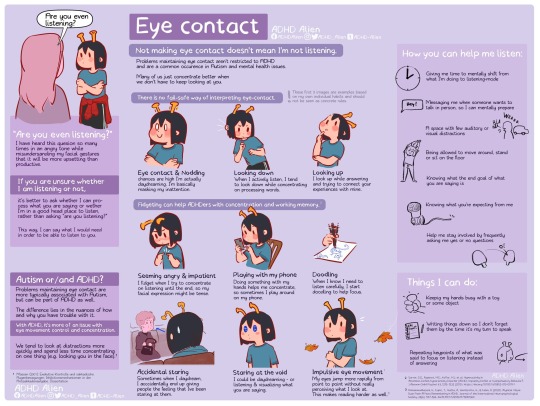
I was in a workshop the other day where someone was detailing how they, compared to others, show respect by not fidgeting and keeping eye-contact with people.
So yeah, I felt the need to make this comic.
Keep in mind: This isn't an ADHD specific problem and depending on the nuance, can stem from different areas like anxiety or autism. The eye-contact "issues" with ADHD stem more from impulsive eye-movements (the kind where you are not really looking at anything) and high distractability.
ADHD also has a significant overlap with eye-conditions and some studies suggest that ADHD medication can actually help with some eye-conditions. (Is that why my sight feels more blurry on days off medication?!)
5K notes
·
View notes
Text

320 notes
·
View notes
Text
Feel free to rave a couple of sites for unlearning religious trauma.
I was raised to be homophobic, to dress modest, to guard my tongue against gossip. Its hard that I grew out of that through life experience but am now living in a space with someone who wholeheartedly believes in their own religious indoctrination and uses the refrain when asked why they won't help "why make their trip to hell easier?"
Like bruh I was just suggesting they donate clothes, or not hoard the last of the bargain bin to yourself. Not everything you do has to be in the < insert name of deity here>. I'm not even a <insert religious majority here> and you know that!
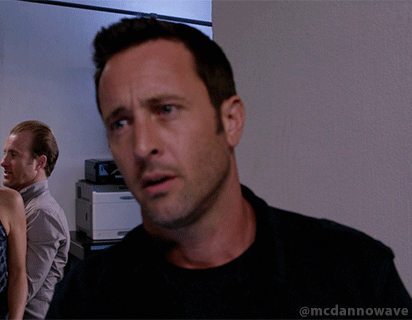

#self compassion and accountability can and must coexist#religious trauma#trauma recovery#are you serious#jesus fucking fuck#zealot
3K notes
·
View notes
